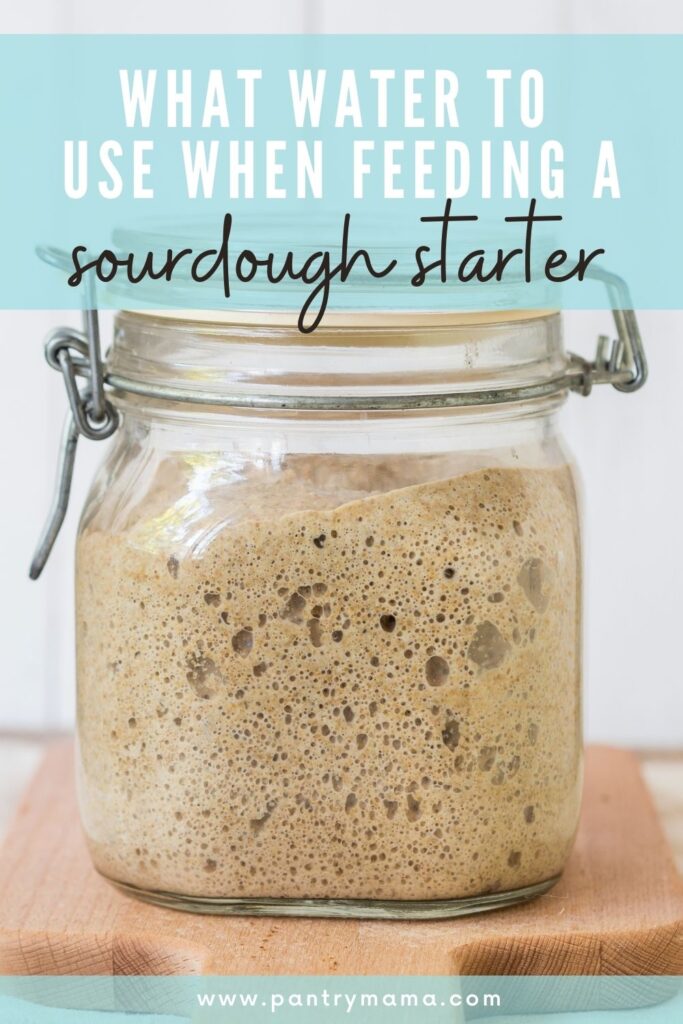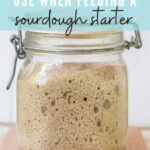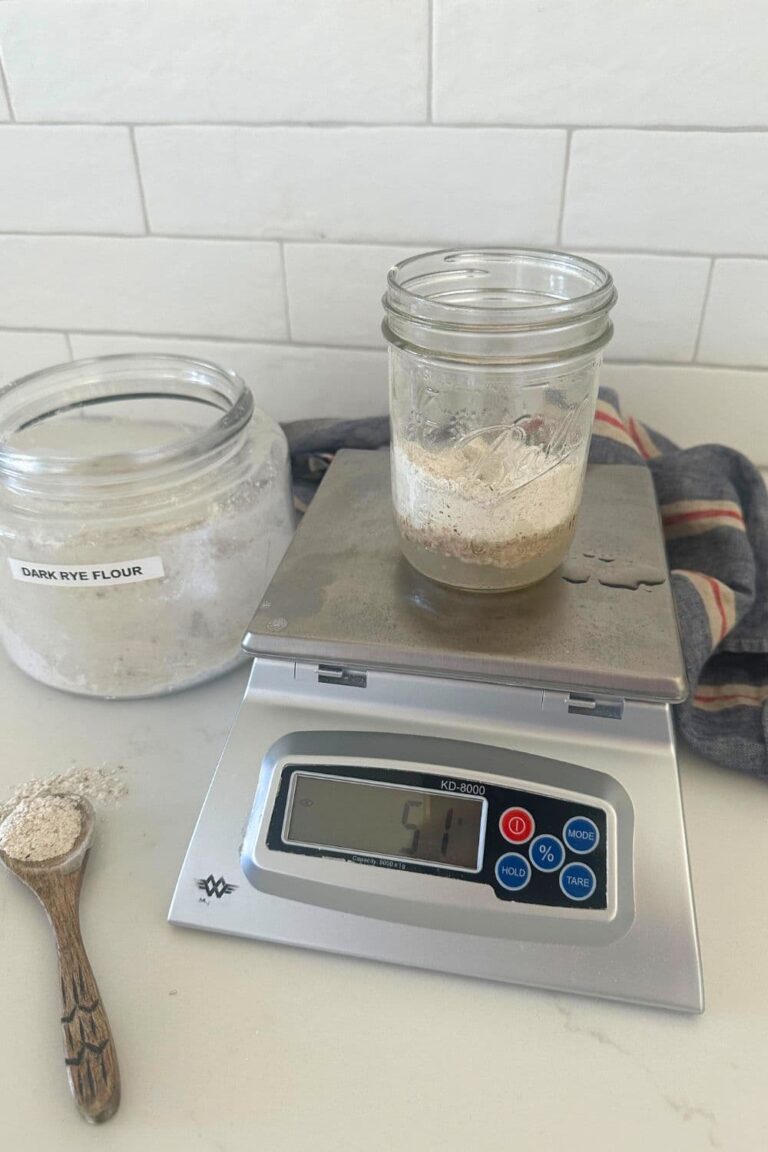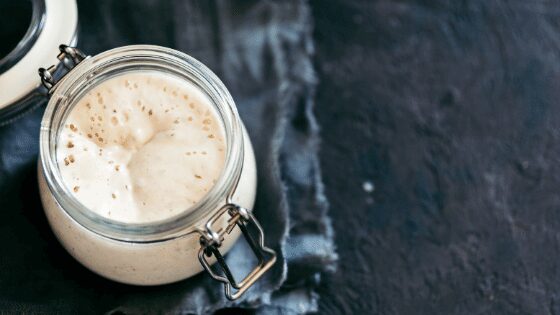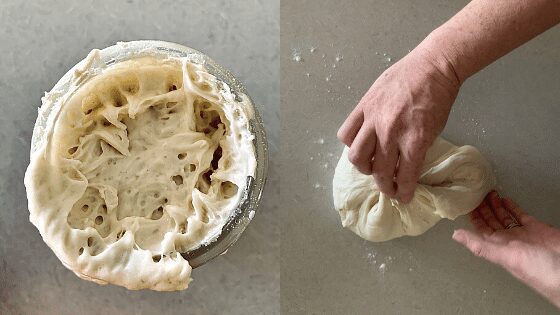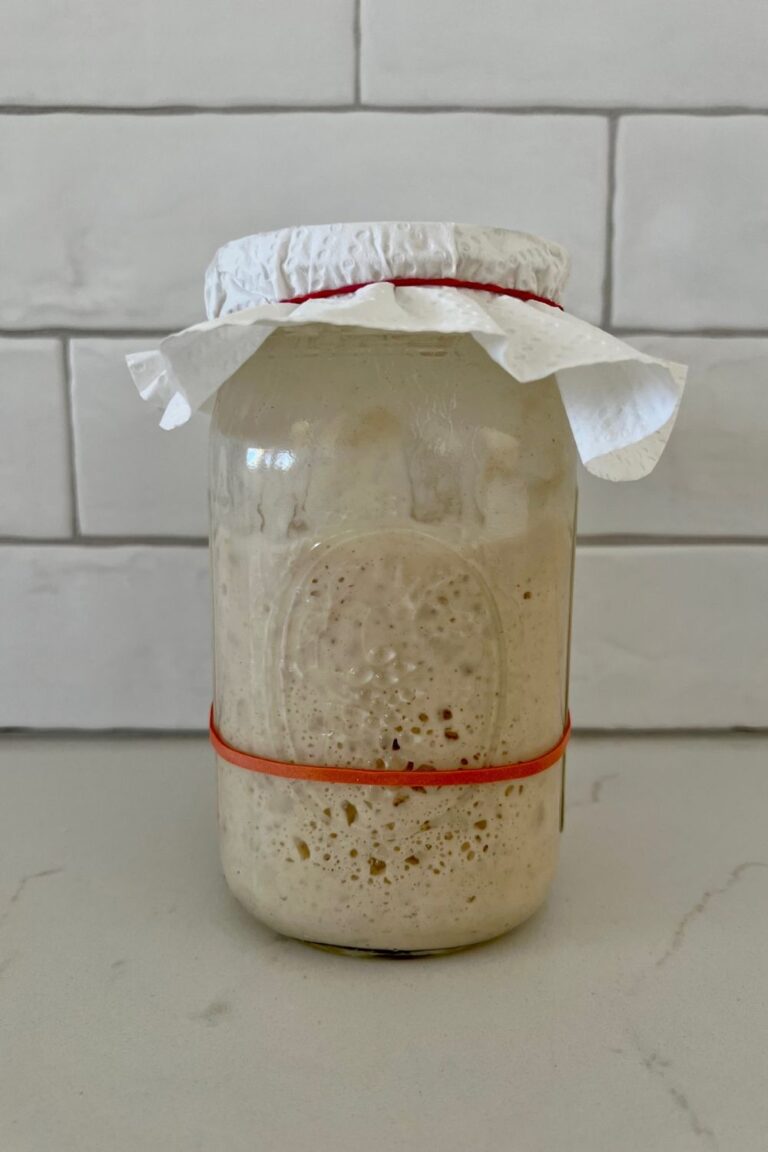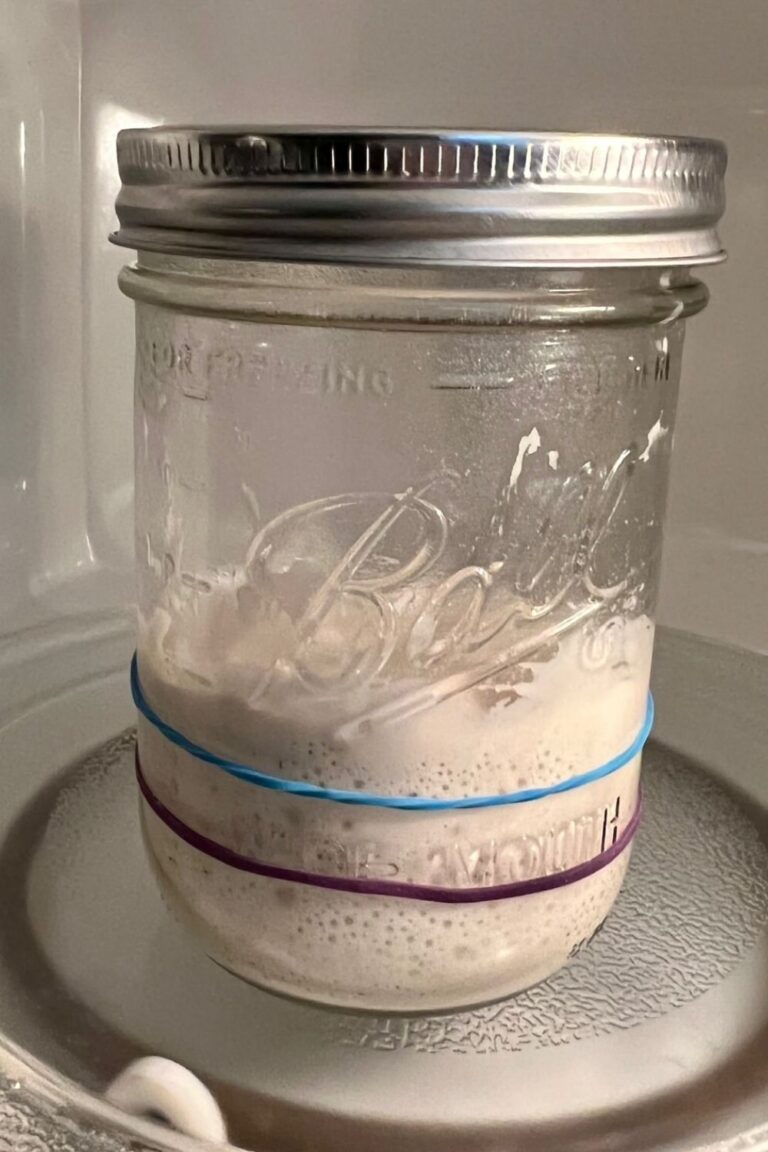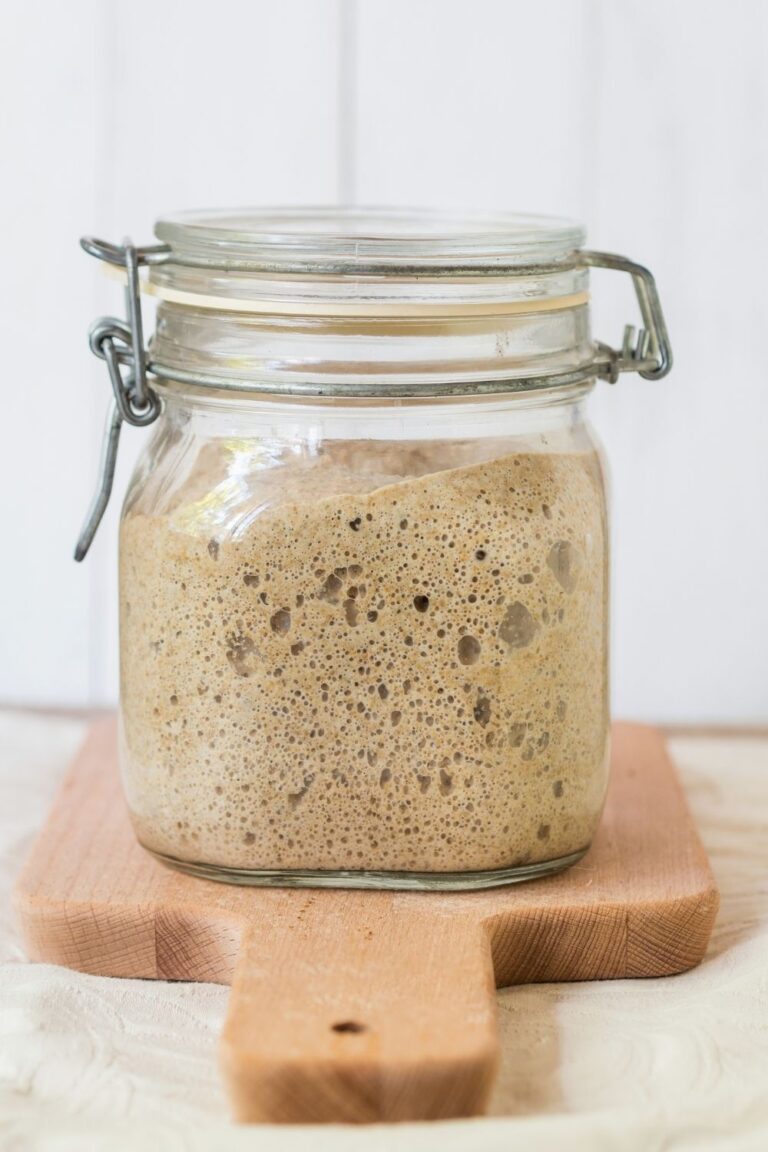What Water To Use For Sourdough Starter?
This post may contain affiliate links.
Have you ever wondered what water to use for sourdough starter?
The quality of the water you choose will have an effect on the viability and health of your sourdough starter, as well as the results of your sourdough bakes.
Choosing unsuitable water can be detrimental to the health and strength of your sourdough starter.
This guide will explain what water to use for sourdough starter to get the best results through every aspect of your sourdough journey.
If you know the quality of your water is good but your starter is still not rising, check out these 5 tips for boosting a sourdough starter.
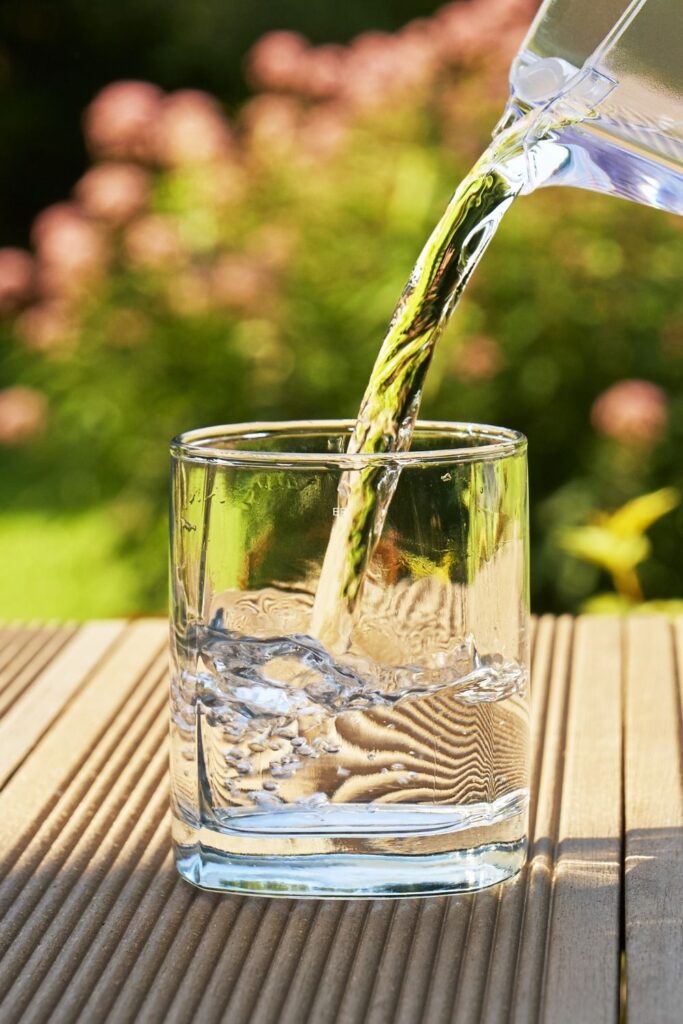
What Water Should You Use For Sourdough Starter?
When you are making a sourdough starter it's really important to choose the water you use carefully.
Ideally you want to feed your starter with one of the following water choices:
- Clean Spring Water
- Bottled Water (but read the source of it)
- Filtered Tap Water (jug filter, fridge filter or house filter)
- Rain Water (preferably filtered)
You should avoid the following types of water when making a sourdough starter:
- Distilled Water
- Reverse Osmosis Water
- Chlorinated Tap Water
- Hard Water
- Soft Water
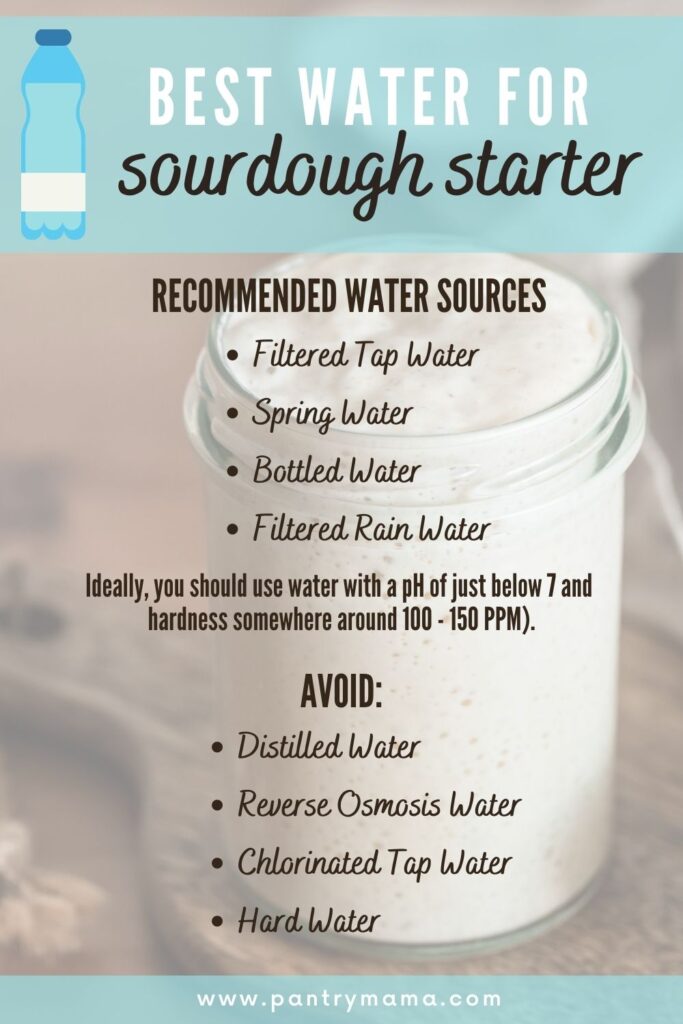
Why Does Water Matter When Making A Sourdough Starter?
When you are making a sourdough starter, you are essentially trying to create and harness a colony of bacteria and wild yeast.
This is called a "SCOBY" - symbiotic culture of bacteria and yeast.
These bacteria and yeast feed on the flour and water that you put into the jar. In order for fermentation to occur, the bacteria and yeast need to consume the flour and water in the jar. The carbon dioxide they produce is a result of this process and it is this gas which causes your sourdough starter (and bread) to rise.
Healthy water contains important minerals such as magnesium, calcium and sodium.
These minerals have been deposited into the water as it travels across rocks, earth and sand and are not only essential to the health of humans, but also to the health of your sourdough starter.
If the water you are using is devoid of these minerals, or in fact has too many of these minerals, you will find it hard to foster the right fermentation for your starter.
Ideally, you should use water with a pH of just below 7 - it needs to be not too hard and not too soft (somewhere around 100 - 150 PPM). Simple, right?
Does The Temperature of Water Affect Sourdough Starter?
The temperature of the water will affect the activity of a sourdough starter.
The ideal temperature for a sourdough starter is between 24 - 28C (75 - 82F).
Particularly if you are working in a cold climate, feeding your sourdough starter with warm water will help to boost the activity of the bacteria and yeast.
You don't want to kill the starter - so just room temp or slightly warmer is perfect.
Warm water is also useful if you're feeding your starter right out of the fridge.
Similarly, if you are in a particularly warm environment, using cooler or cold water will slow the activity of the starter down. This can be particularly useful if you are wanting to prolong the peak of the starter or just lengthen the fermentation time.
Will Tap Water Kill My Sourdough Starter?
Yes, tap water can kill your sourdough starter in some instances.
In many cities and towns around the world, tap water is treated with chloramine.
Chloramine is not a desirable chemical to have in a sourdough starter because it will kill the LAB in the starter. This inhibits the starter's strength and ability to rise.
The chloramine in tap water will not kill the yeast, but it will not help them flourish or reproduce either.
If you are using unfiltered tap water in your sourdough starter and it is not rising or forming bubbles, this may be the reason.
To fix the issue, you will need to either dechlorinate or filter the tap water - or swap to a different water source.
You can see how to easily dechlorinate your water further down the page.
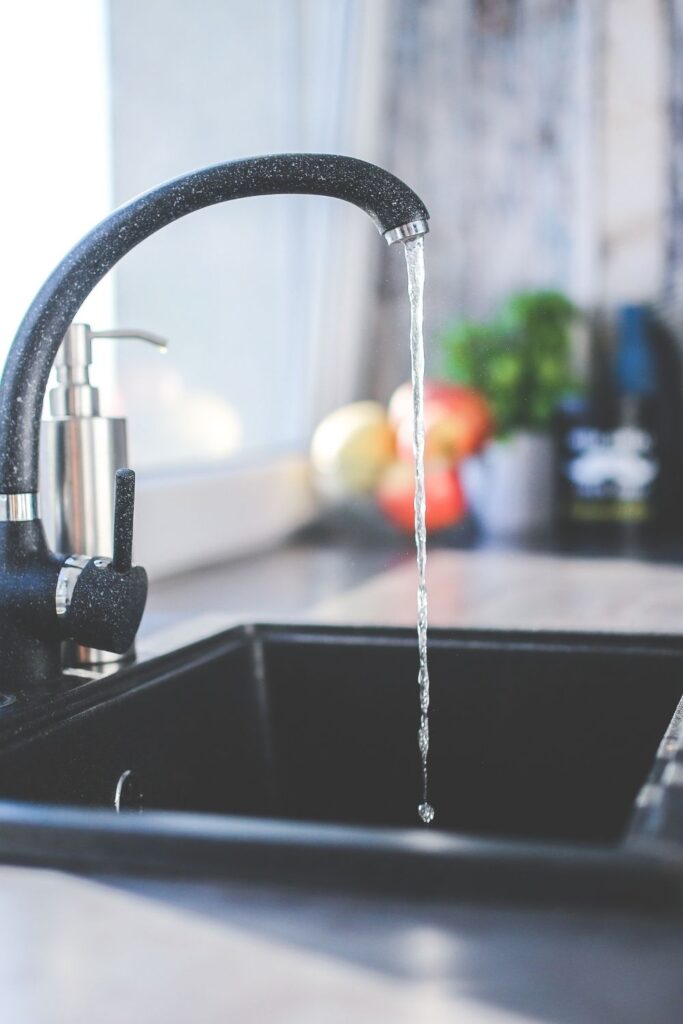
Is Brita Filtered Water Suitable for Sourdough Starter?
Yes, a Brita Water Filter Jug will remove sufficient chlorine and other nasties from your tap water to make it suitable to feed your sourdough starter with.
This is one of the most economical and convenient ways to filter tap water for home usage.
If you are needing to filter the water you feed your sourdough starter or you are looking for a more convenient water source to bottled water, a Brita Filter (or similar) might be just what you're looking for.
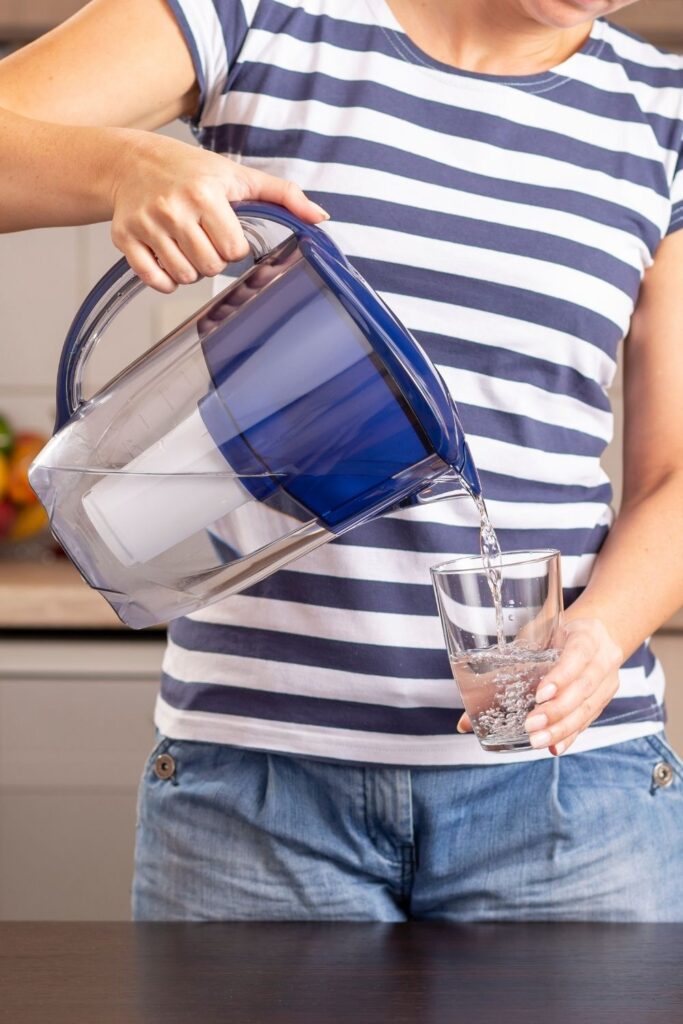
How To Dechlorinate Tap Water For Baking
Being able to remove chlorine from your tap water is very handy if you intend to use it in your sourdough starter, and indeed sourdough bread.
It's not hard to do, but it takes time - much like baking sourdough!
There are two easy ways to remove chlorine from tap water without a filter.
- Boil the water and let it cool naturally - then it is safe to use in your starter.
- Fill a glass with water and let it sit out overnight - then it is safe to use in your starter.
Both of these methods are easy - however will require some forward planning to ensure you have dechlorinated water ready for feeding your starter when required.
You can read more about this process here.
Is Distilled Water Bad For Sourdough?
Yes, distilled water is bad for sourdough and is unsuitable for feeding your sourdough starter.
Distilled water is produced by boiling water and then condensing the collected steam back into a liquid. This process removes impurities and minerals from the water. These minerals are important for your sourdough starter to thrive.
Distilled water is used in many industrial applications and is even recommended for your iron (because it prevents that annoying build up) - but not for sourdough.
Can I Use Reverse Osmosis Water In My Sourdough Starter?
Reverse Osmosis Water is similar to distilled water in that it has had all of the precious minerals removed from it. It is a popular choice of water filtration in many homes.
Reverse osmosis water is unsuitable for sourdough starter because it will inhibit good bacteria growth due to the lack of minerals left behind.
If you have this type of water filtration system at home, it's recommended that you use an alternative water source for your sourdough starter (and indeed bread baking in general).
Can You Feed Sourdough Starter With Rain Water?
Yes you can feed your sourdough starter with rain water (this is how I feed mine).
However keep in mind that rain water can contain contaminants, particularly if it's collected from your roof or stored in a large tank (where it is not temperature controlled).
For this reason, filtering rain water is recommended to ensure that it is clean and free from any unwanted nasties.
Is Well Water Ok For Sourdough?
Yes you can use well water to feed your sourdough starter, however, if your starter is not successful, you may need to look at testing the water - or changing to an alternative water source.
Well water can contain concentrations of minerals and could harbor bacteria that are not beneficial to your starter.
Similarly, if you treat your well water before using, this could also prevent the good bacterial growth from occurring in your starter.
How Does Hard Water Affect Sourdough Starter?
Hard water is not recommended for sourdough starter or sourdough baking. It contains too many calcium and magnesium ions to be beneficial for sourdough.
Hard water can be described as anything above 200 PPM.
Using excessively hard water can have detrimental effect on your sourdough starter and your sourdough bread.
The excessive mineral content will decrease fermentation (not good for starter or bread) and will cause the gluten to tighten. This makes your dough very hard to work with.
Your starter is reliant on fermentation and as hard water will inhibit this process. It's not recommended to use hard water for sourdough.
What About Soft Water?
Just as hard water affects sourdough, soft water is equally unsuitable.
Soft water is the opposite of hard water in that it contains a lack of minerals.
The lack of minerals in soft water can result in a wet, sticky dough. This is undesirable for sourdough as it makes it hard to shape and handle.
Can I Use Carbonated Water For Sourdough Starter?
There is really no benefit to using carbonated water for your sourdough starter. I would recommend you stick to uncarbonated water.
Remember that soda water or club soda depending on where you live is not only carbonated, but also has added salts. These added salts are not beneficial to your sourdough starter.
It would not be overly harmful to sourdough dough itself, but definitely not recommended for your sourdough starter.
Can I Replace Water With Something Else in a Sourdough Starter?
Essentially, flour and water are all you need to create a thriving sourdough starter.
However, there are many theories around replacing the water in your sourdough starter with other liquids. These can include whey, beer, honey, pineapple juice, apple juice and even sauerkraut juice.
Many of these liquids will cause your sourdough starter to rise, however they may also change the chemical composition of your sourdough starter.
For this reason, it's best to stick with water when feeding your sourdough starter. Save the more adventurous liquids for your sourdough bread.
Whey and beer are great choices for more flavorful sourdough bread.
It's always fun to experiment with different ideas - as long as you are willing to sacrifice a little flour.
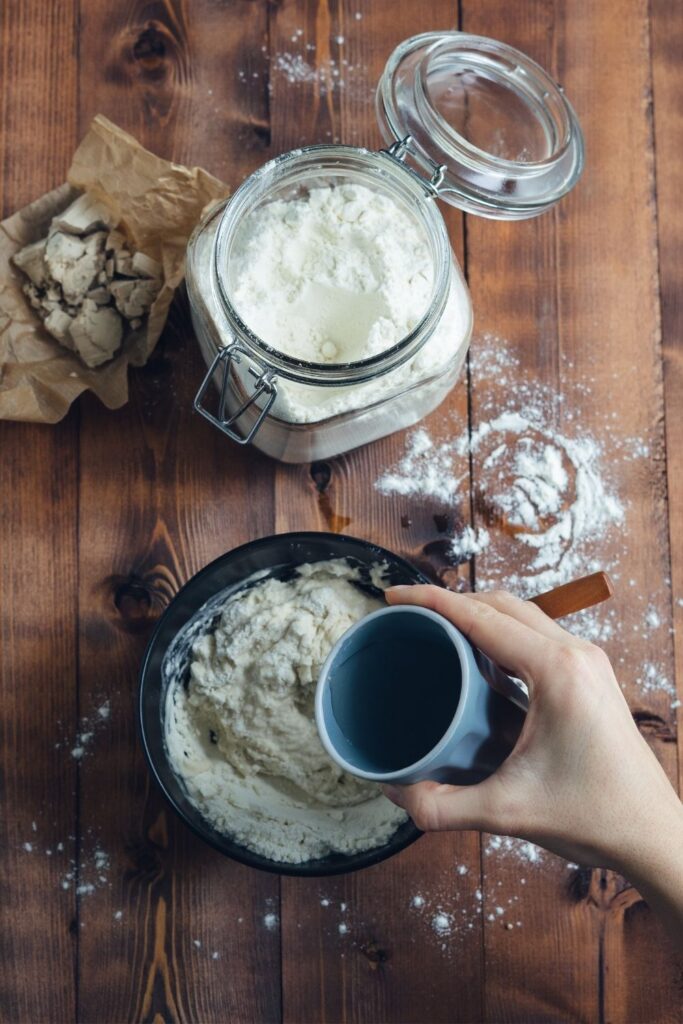
The Role Of Water In Sourdough Baking
Water may seem like a basic ingredient in sourdough bread, however it really is super important.
Water is super important to sourdough because it is responsible for:
- Forming gluten - gluten forms when water is added to flour - without it, sourdough bread would not be possible!
- Dissolves salt, yeast and sugar and distributes them throughout the dough
- Yeast fermentation and reproduction (and the temperature of the water increases or decreases the speed of fermentation).
- Determining the consistency of the dough (ie lower or higher hydration)
- Triggers Maillard Reaction which is responsible for a dark brown glossy crust
- Responsible for the steam used to create a crispy crust
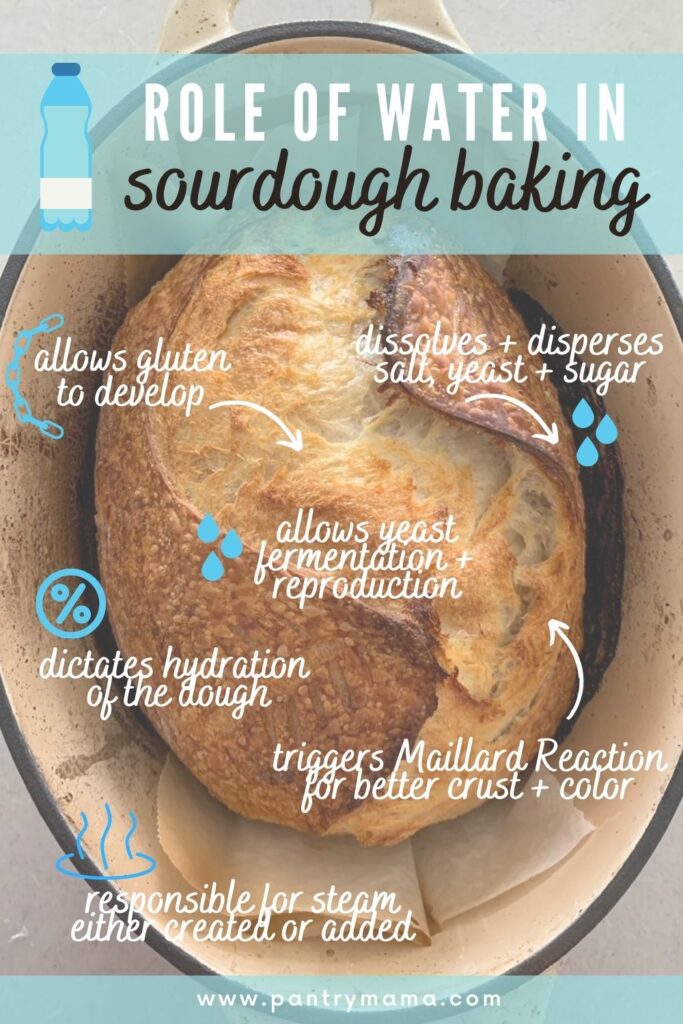
Frequently Asked Questions
Yes bottled water is worth the expense for feeding sourdough starter. If you are using nutrient rich, unbleached flour but chlorinated water, your chances or growing a successful sourdough starter greatly reduced. Water can make or break your starter and if your starter fails, you are wasting money on flour, so it's best to buy bottled water to feed your starter if you are worried about the quality of the water that comes out of your tap. Just make sure the bottled water you are buying is not just "reverse osmosis water" or treated tap water.
Soft water is basically devoid of minerals, whereas hard water has too many. Neither is really the best choice for feeding your sourdough starter, however harder water would be better than soft if given the choice.
Yes spring water would be better than tap water when feeding a sourdough starter, simply because tap water is more likely to contain chlorine and other disinfectants.
It really depends on the ambient temperature in your kitchen and what you are wanting to achieve. If your kitchen is cold, warm water will give your starter a boost and aid in fermentation. If your kitchen is already warm and you want to slow your starter down or indeed delay the peak of your starter, cold water is preferable.

Want More Information?
If you are interested in more information around creating a sourdough starter, these articles might be of interest:
- Beginner's Guide To Sourdough Hydration - learn how water affects the sourdough baking process.
- Where Does the Yeast in Sourdough Starter Come From?
- 5 Tips to Boost Your Sourdough Starter
- Why Is My Sourdough Starter So Runny?
